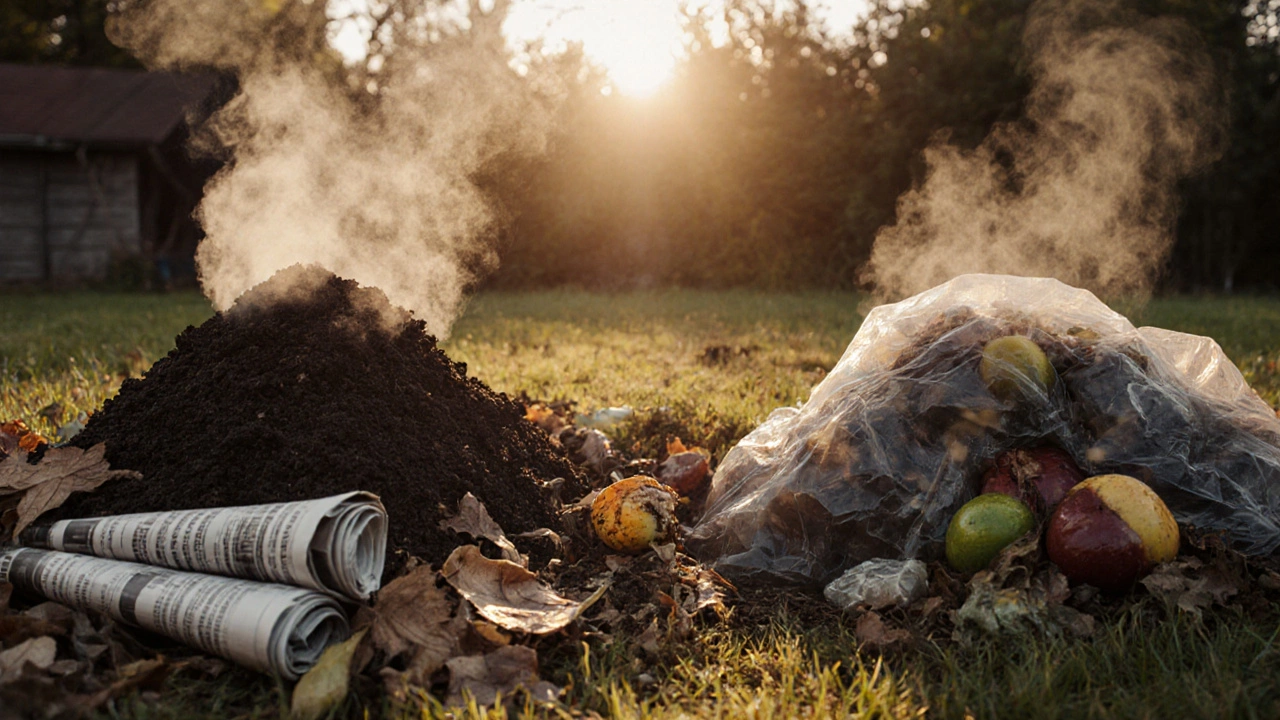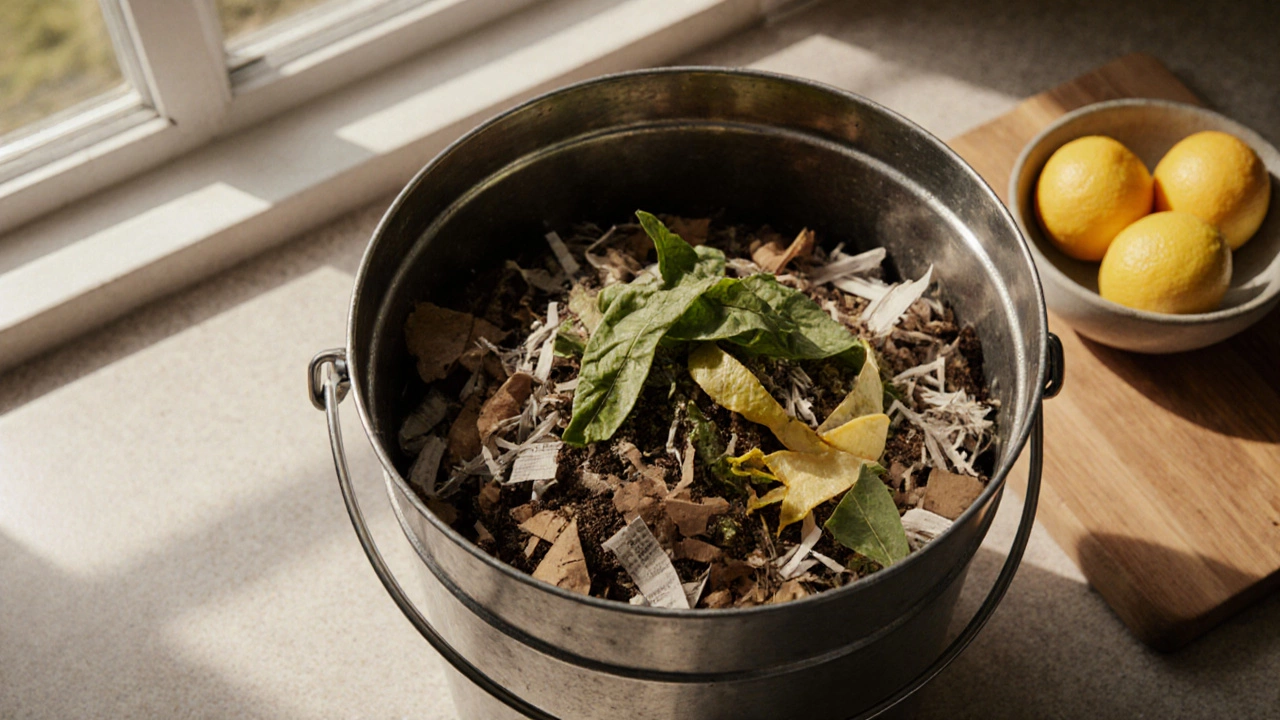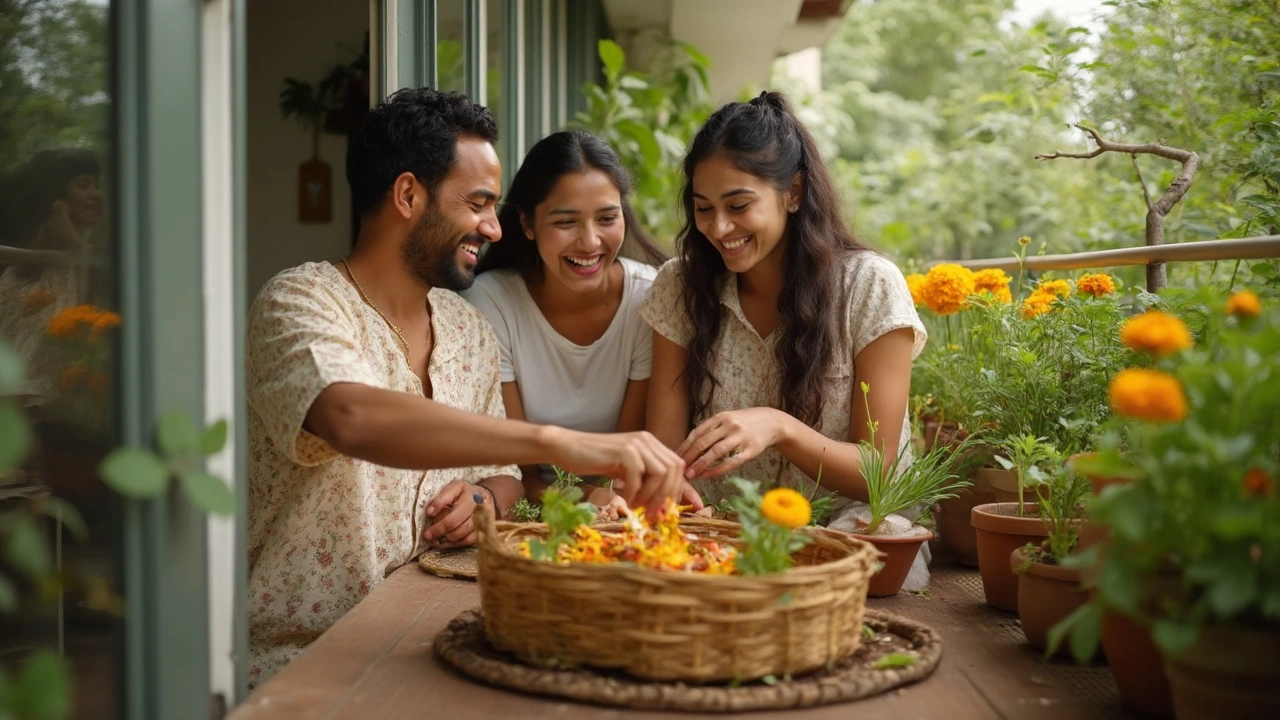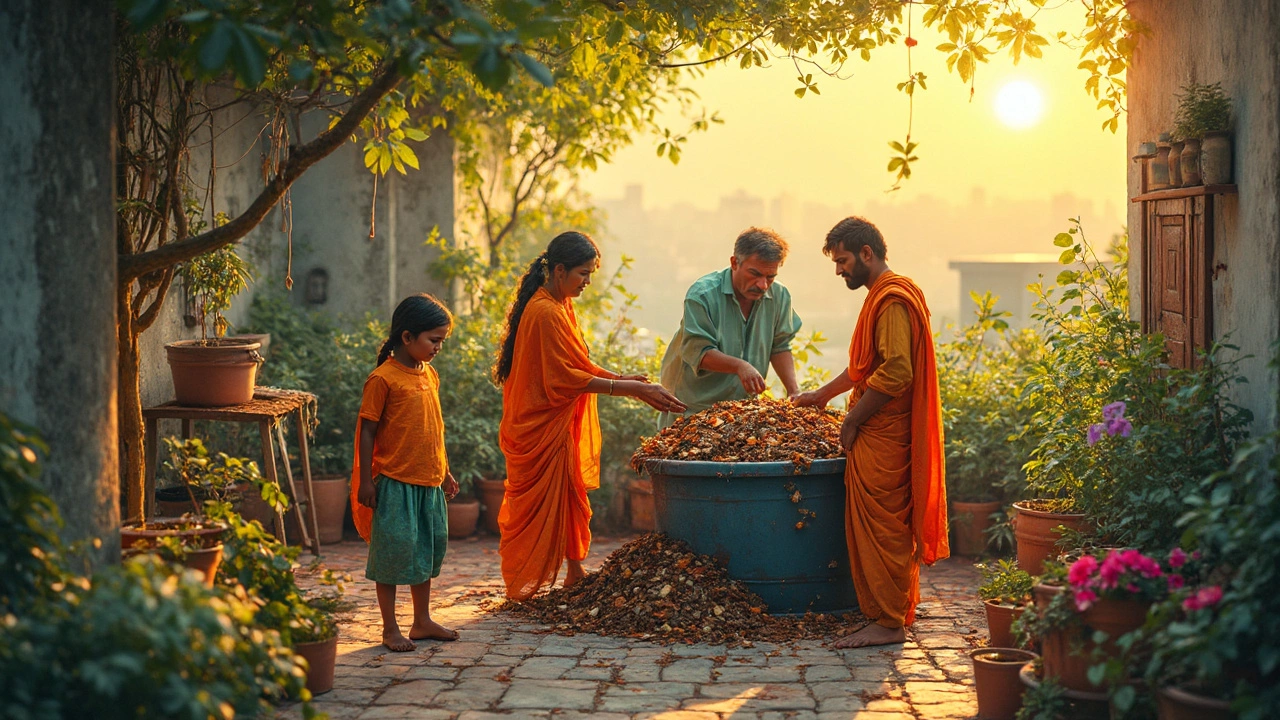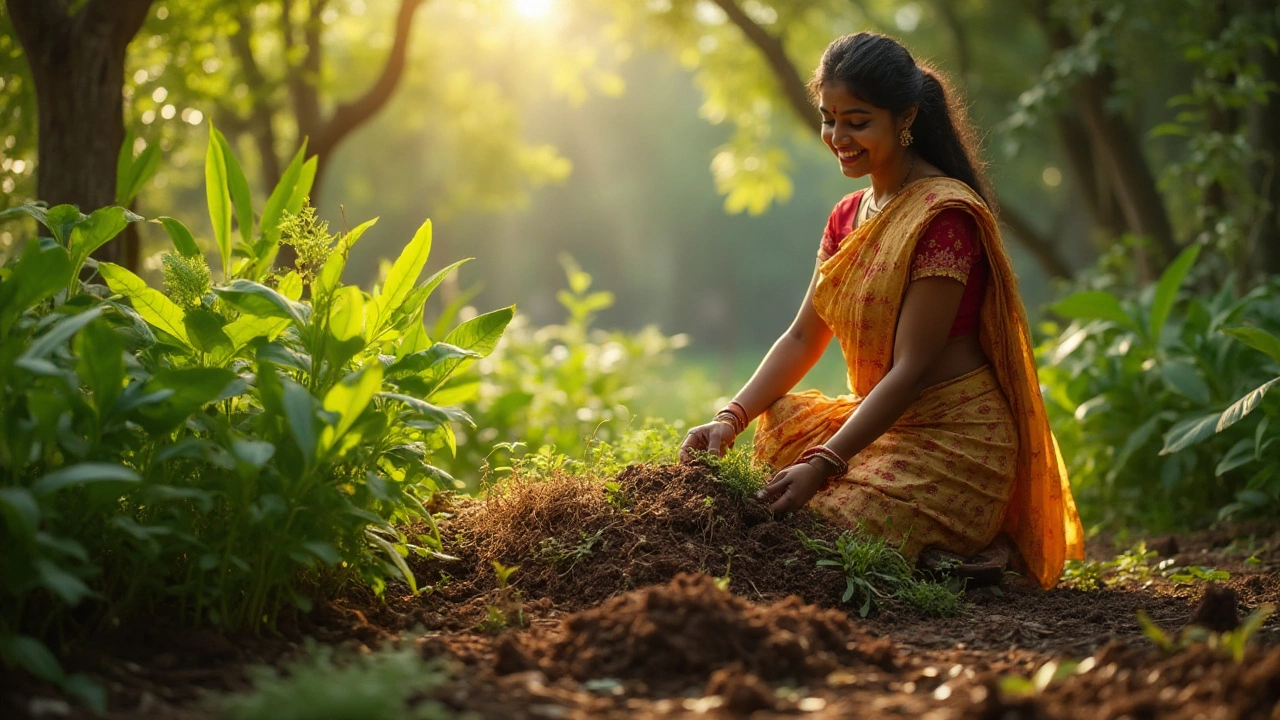Discover how to make the best homemade compost with simple recipes, step‑by‑step guides, and troubleshooting tips for faster, odor‑free results.
Composting: Simple Ways to Turn Waste into Rich Soil for Indian Gardens
When you think of composting, the natural process of breaking down organic waste into nutrient-rich soil. Also known as organic recycling, it’s one of the easiest ways to cut down on trash and grow healthier plants without buying fertilizers. In India, where kitchens generate tons of vegetable peels, coffee grounds, and yard clippings every day, composting isn’t just eco-friendly—it’s practical. You don’t need a big yard or fancy gear. Even a corner of your balcony or a simple pit in the backyard can turn your waste into black gold for your plants.
Successful composting relies on just four things: brown materials, carbon-rich items like dry leaves, paper, or straw, green materials, nitrogen-rich scraps like fruit peels, tea bags, and grass clippings, moisture, enough to keep things damp like a wrung-out sponge, and air, which lets microbes do their job without stink. Get the balance right, and you’ll avoid smells, flies, and slow breakdown. Skip the balance, and you’ll end up with a slimy mess. The good news? Most people mess up the ratio, not the method. You’re not failing—you’re just missing a tweak.
Some folks swear by vermicomposting, using worms to speed up decomposition, especially in apartments. Others use a compost tumbler, a rotating bin that mixes waste without turning it by hand. Then there’s the lazy way—just pile it, leave it, and let nature take over. All of these work. The key isn’t perfection. It’s consistency. You don’t need to be a gardener to do this. You just need to stop tossing your scraps and start seeing them as soil waiting to happen.
What you’ll find below are real, tested methods from Indian homes and small farms. No theory. No fluff. Just what actually works in our climate—with monsoon humidity, hot summers, and limited space. Whether you’re trying to grow tomatoes on your balcony, revive a tired backyard, or cut down on plastic bags of fertilizer, these guides show you how to get results without stress. You’ll learn what not to compost, how to fix a stinky pile, and why your neighbor’s compost smells like earth while yours smells like regret. This isn’t about doing it right. It’s about doing it simply—and finally getting soil that makes your plants thrive.
Learn the four key ingredients-carbon-rich browns, nitrogen-rich greens, oxygen, and moisture-needed for fast, odor‑free composting and a nutrient‑rich garden amendment.
Want compost without breaking a sweat? This guide gets real about the absolute easiest ways to turn kitchen leftovers and yard scraps into rich soil. No fancy tools or complicated methods here—just straightforward hacks for people who want their scraps to turn into compost with almost zero effort. You’ll find which materials work best, surprising dos and don’ts, and how to avoid any major smells or critter issues. Ready to turn your trash into treasure while barely lifting a finger? You’re in the right place.
Composting is a great way to recycle organic waste and enrich soil, but it's not without its challenges. From smell and pest issues to the time commitment and space requirements, there are several drawbacks to consider. However, with the right tips and tricks, you can overcome these obstacles and have a successful composting experience. Here, we explore the common issues faced in composting and offer practical solutions to make it work for you.
Organic composting is a sustainable way to recycle kitchen scraps and yard waste into nutrient-rich soil for gardening. This practice not only reduces landfill waste but also enriches the garden with essential minerals. Discover the basics of composting, ideal materials to use, and smart tips to optimize the process. With patience and proper care, creating your own compost becomes an easy and rewarding task. Learn how to create a thriving compost pile at home with simple techniques.
